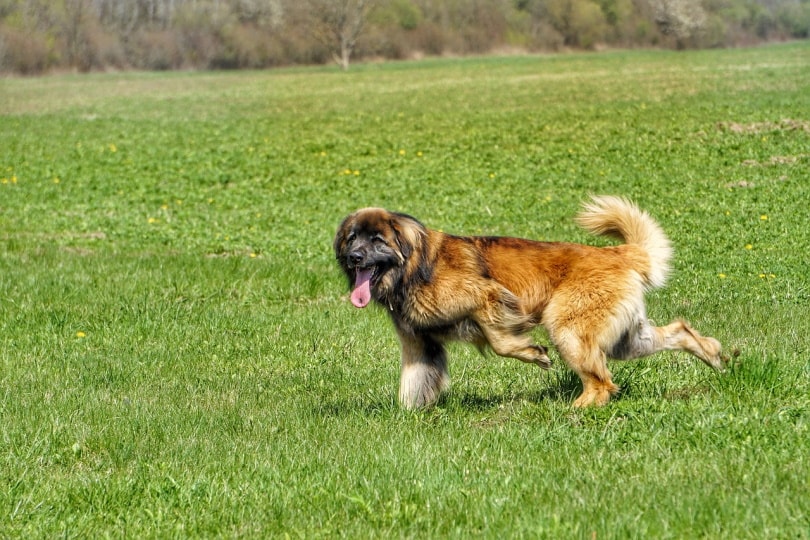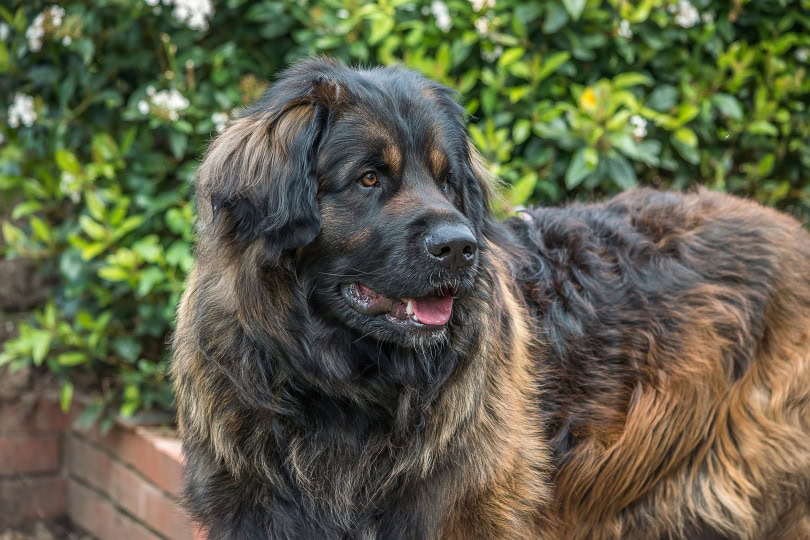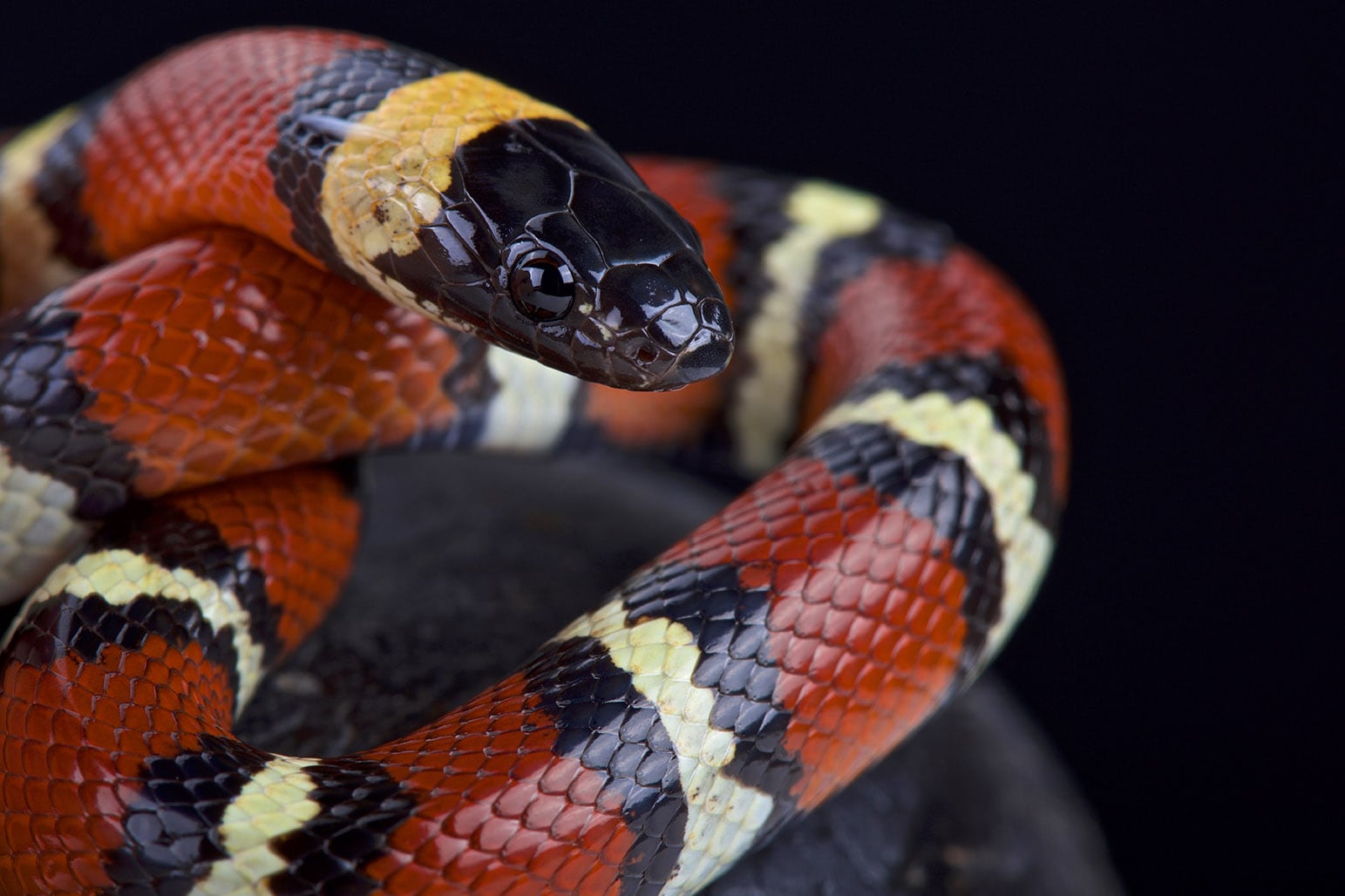Click Below to Skip Ahead
Boasting a muscular frame, a family-friendly attitude, and an energetic nature, the Leonberger is adored by many people. If you are looking for a fluffy canine friend to add to your household, this breed may be exactly what you are looking for.
Breed Overview
Height:
28–31 inches
Weight:
120–170 pounds
Lifespan:
8–9 years
Colors:
Mahogany, red, sandy, yellow
Suitable for:
Active families, big households
Temperament:
Friendly, welcomes training, affectionate
Ever since being imported to the United States in the early 1970s, Leonbergers have proven adept at doing water rescue work, tracking, guarding livestock, and most importantly, being friendly additions to many families.
Leonberger Characteristics

Leonberger Puppies
Before you consider welcoming a Leonberger into your home, you should consider the intense commitment that you are about to make. This dog tends to live around 8 to 9 years, but since they are a big breed, they can be more prone to potential health issues and, therefore, live a shorter lifespan.
If you do bring home a Leonberger, be prepared to have a friendly, energetic, and affectionate pet that will want to play with you every day. Read this care guide carefully to know how to properly take care of your puppy so they will grow into a happy and healthy adult.


Temperament & Intelligence of the Leonberger
If the physical attributes are not enough to identify them, a Leonberger will be quick to demonstrate their identity through their attitude. This breed is commonly known for their gentle nature despite their large stature. Their ruffled, lion-like appearance may give off intimidating vibes to some people, but to others, this dog is incredibly playful. They are especially gentle with smaller children, and they know how much they can tolerate.
The Leonberger’s friendly nature also extends to friends and visitors. If they see that you had a bad day or need someone to cuddle with, they will make themselves available. However, what can be friendly behavior to family can be a warning sign to potential intruders or strangers.
This breed has a history of guarding, so they will be quick to announce their presence if they suspect danger, and their protective streak will come in if they feel that there is a threat looming. One consequence of a Leonberger’s friendly disposition is the fact that they hate being alone and require constant companionship. This may not be the breed for you if other commitments require you to be away from your house for extended periods of time. They do not tolerate solitude well.
Are These Dogs Good for Families? 👪
The Leonberger is a perfect companion for any household, as they welcome love and affection, whether from adults or children. Despite the maintenance that is needed to facilitate proper development, this breed can be part of families of all sizes. There just needs to be proper consideration as to what environment they should be raised in.
Does This Breed Get Along With Other Pets?
Whether a Leonberger will get along with other pets highly hinges upon how much their socialization skills are allowed to develop, especially from an early age. If they get proper training during their earlier years, they will be friendly and playful with others. However, if they are not given sufficient stimulation, they may not be nearly as welcoming and may deem other animals as threats.

Things to Know When Owning a Leonberger Dog
Food & Diet Requirements 🦴
You will need an accurate measurement of how much your Leonberger weighs because that will determine how much food they need. Energy levels, size, and age are also several factors in their nutrition. Typically, an average Leonberger will eat 5 to 7 cups of kibble a day. Monitoring how much they eat is vital because they are prone to putting on weight fast, which can lead to weight-related concerns. Gastric torsion is a condition that commonly affects large breeds in which the stomach twists. Small, frequent meals are recommended to avert this potential scenario.
Every pet is unique in their nutritional needs, so we recommend reaching out to your vet for nutritional advice.
Exercise 🐕
To maintain a healthy lifestyle, the Leonberger will require around 1 hour of exercise a day. A brief walk in your local neighborhood or a nearby park should be sufficient. It is recommended that you do alternate exercises and provide some measure of variety so boredom does not sink in. This breed is liable to exhibit destructive behavior if there isn’t sufficient stimulation.
Another thing to consider is the space that you are living in. As you can imagine, a big dog with sizable exercise requirements requires a good deal of space. An apartment building is typically not ideal, but if there’s enough room, it can work. To best meet this breed’s exercise needs, you should have a large space with a private yard.
Training 🎾
Leonbergers tolerate training because they tend to be eager to please their owners. It’s also another chance to have quality time. You should start their training when they are young because it will be easier for them to respond to positive reinforcement as they grow. Praise, head scratches, and treats have proven to be effective motivators. However, you can find your own creative ways to show your pup that they are doing a good job.
Coinciding with training, Leonbergers tend to chase things quite a bit, so it may also be a good idea to introduce them to various environments that contain other dogs, humans, and maintenance routines like grooming. You are more likely to get an obedient pet the younger you start introducing them to these things.
Arguably, the most important aspect of their training regimen is their leash. A fully grown Leonberger can weigh as much as 170 pounds, so for your safety and theirs, you should teach them how to walk in a polite manner while on a leash.
Grooming ✂️
You will want to pay special attention to the Leonberger’s coat, as it is high maintenance and requires commitment. If their fur is neglected, it may cause significant matting and give the dog a disheveled look and chronic pain. They have a thick double coat, so they will shed throughout the year. You should never shave it, as this coat helps regulate their temperature, keeping them warm during the winter and cool during the summer. That said, they will require a daily brushing regimen. A metal comb will be needed for the undercoat, while a slicker brush is recommended for the topcoat. Another requirement for maintaining a healthy coat is an undercoat rake. Two common matting areas that get neglected include the back of the legs and behind the ears.
Aside from coat management, the Leonberger will require a weekly dental cleaning and a bath every 6 to 8 weeks. You also want to be mindful of bacterial infections in their ears. These can be wiped with a cotton bud and ear cleaning solution. Their nails will also need to get trimmed at least twice monthly. To make all these various commitments easier for the Leonberger to adapt to, it is ideal to get them used to a grooming schedule from a young age.
Health and Conditions 🏥
In terms of potential medical issues to watch for, Leonbergers are typically healthy. However, due to their giant stature, their lifespan is relatively short; the average lifespan for this breed is approximately 9 years, which is considerably lower than that of smaller dogs. Therefore, a proper exercise regimen, regular grooming, veterinarian visits, and obedience training are crucial to maximize your short years with this dog.
There are certain conditions that you may want to preemptively prepare for, however.
- Joint dysplasia
- Cataracts
- Progressive retinal atrophy
- Leonberger polyneuropathy
Serious Conditions:
You must be aware of a condition known as Leonberger polyneuropathy, an inherited neuromuscular disease that is triggered by a weakening of nerve fibers within the body. If you notice that your pet cannot tolerate exercise, walks unevenly, or has difficulty breathing, these are red flags that should be addressed because the condition can be fatal in some cases.
Minor Conditions:
A specific issue that is uniform across all large breeds is joint dysplasia, specifically with the hips and elbows. Uneven growth can develop because of their bones growing too quickly. You should investigate this further if you observe your Leonberger struggling to stand or climb stairs without discomfort. Other issues with this breed are eye conditions, such as age-related cataracts and progressive retinal atrophy. Watery eyes, redness, and increased itching are potential signs of this issue.
Male vs. Female
Leonbergers are known for being dimorphic, which means you can discern a female from a male. The typical discerning characteristic of males is their heavier weight. The average male Leonberger can weigh around 132 pounds, while the female can weigh around 105 pounds. In addition, the male’s mane will be more pronounced, and he’ll have a bigger head. You will certainly be able to see these differences if you observe them up close.


3 Little-Known Facts About the Leonberger
1. They Have a Unique Appearance
Various characteristics distinguish the Leonberger from their counterparts. For starters, this is a working dog with physical attributes that are conducive to an active lifestyle. They boast a rectangular head, a firm neck, and feathered legs, so one can easily identify this breed upon closer inspection. You will also be able to identify webbed feet and a bushy tail.
2. World War I Nearly Eliminated All of Them
People often forget that the ravages of war can extend to animals. To prevent this breed’s total extinction, Otto Josenhans and Karl Stadelmann rounded up the remaining 25 Leonbergers that were present at the end of World War I. Out of those 25, only five were in any condition to be bred. After that, a small group in 1922 formed a breeding program, and 4 years later in 1926, 360 Leonbergers were present and thus, saved from extinction.
3. They Have Average-Sized Litters
Leonbergers are not known to produce a lot of puppies at a time, with typical litters clocking in at six on average. So, a record was definitively set in 2009 when a Leonberger produced 18 puppies. It was particularly a shock because the mother, Ariel, had previously produced a litter of only four puppies. Even with an ultrasound, the family had been unable to confirm how many puppies she was having the second time. All that was known was that it was at least 10. The huge litter of puppies kept the family quite occupied!

Final Thoughts
Taking care of a Leonberger requires significant commitment for the sake of their health. From a consistent exercise routine to a daily brushing regimen, much needs to be maintained for a healthy lifespan. However, if these duties are not too stringent, the Leonberger can make the perfect addition to any household.
Various dog lovers often state that adopting this breed will make any family happy because of their playful, friendly nature. That said, you should be mindful of potential health issues and whether your environment can accommodate such a large dog. If the situation works out, you will soon find that a Leonberger is one of the sweetest, kindest dogs. They will adore all members of the family, never cease to smother you with love and affection, and provide you with lifelong memories.
Featured Image Credit: sesheta, Pixabay












